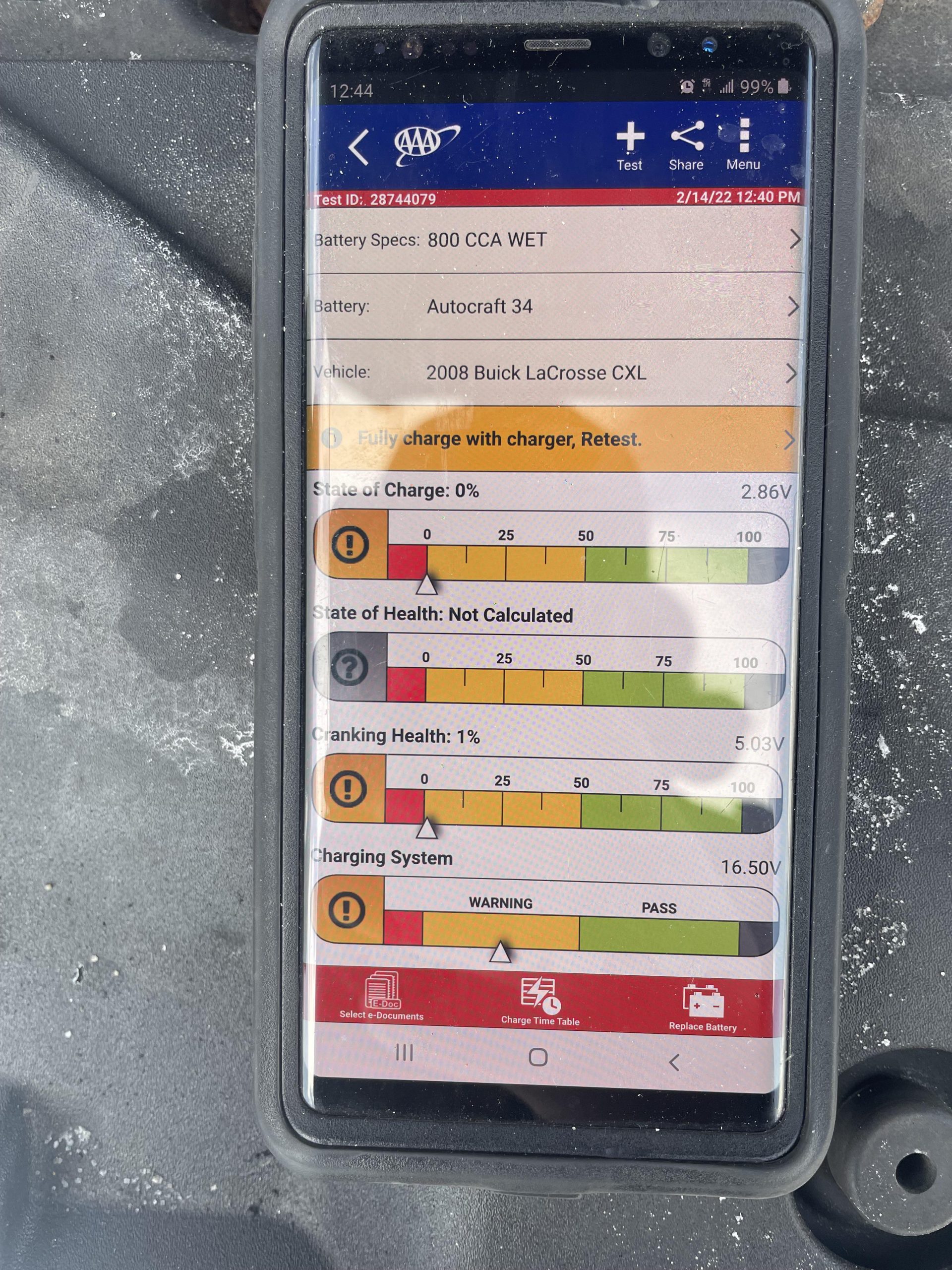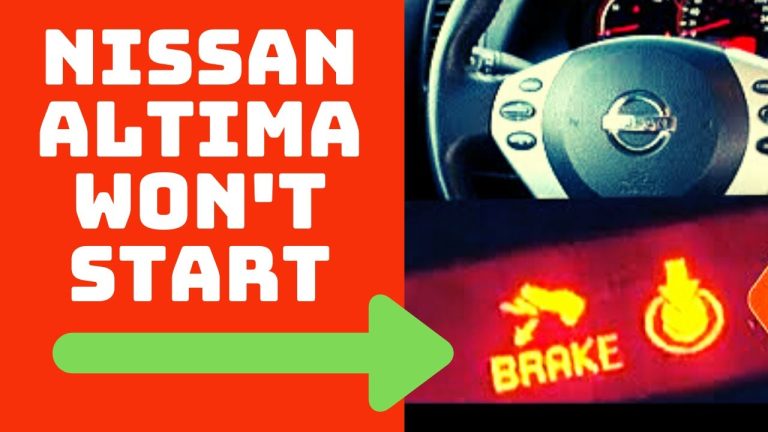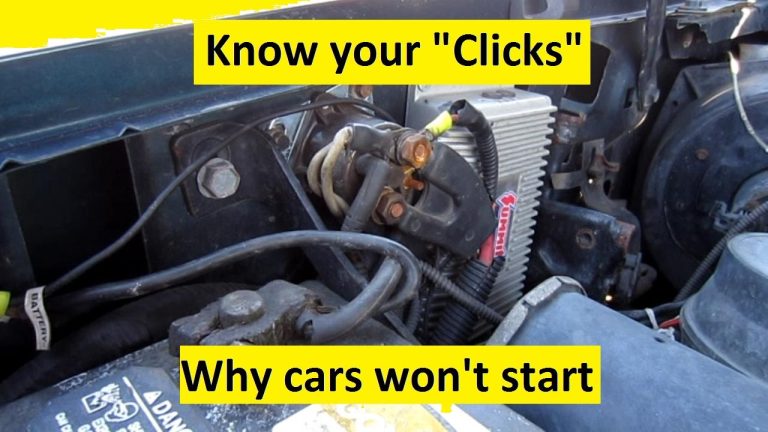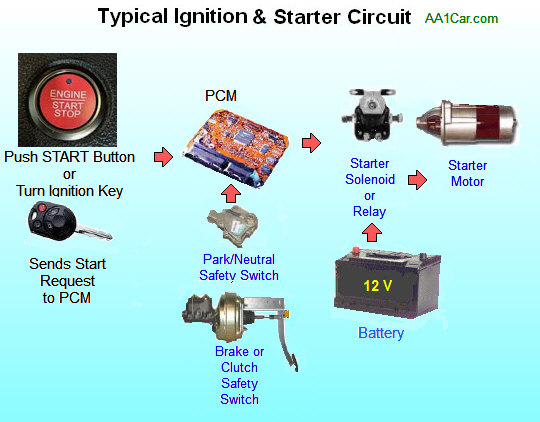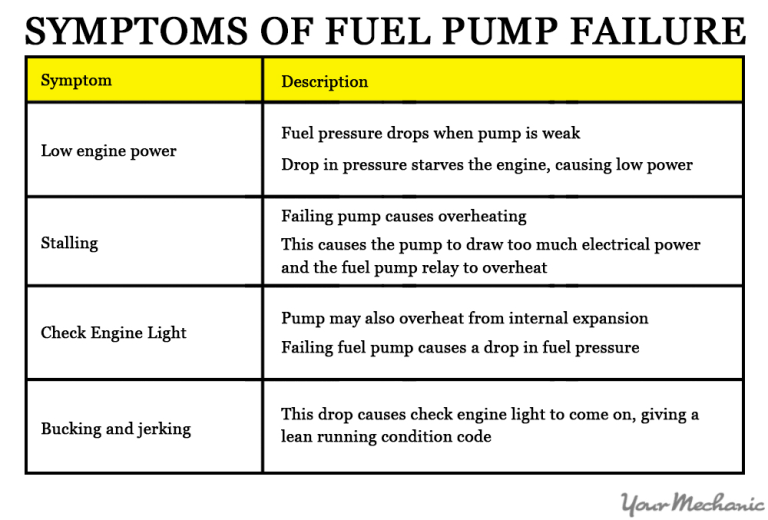Car Only Starts When Jumped But Battery is Good: Hidden Fixes
If your car only starts when jumped but the battery tests good, the problem may lie in a faulty starter, bad ground connection, corroded terminals, or weak alternator output. These issues prevent proper power delivery, even with a healthy battery. A thorough electrical system check is recommended.
Frustrating, right? You’re not alone in this puzzling situation. Many drivers experience this baffling issue, wondering what’s really going on under the hood. Imagine setting out for an important meeting or a spontaneous road trip, only to be held back by a car that refuses to start on its own.
It’s more than an inconvenience; it’s a mystery begging to be solved. Why won’t your car start without a jump, and what can you do about it? The answer might be simpler than you think, and understanding it can save you time, money, and a lot of frustration. Stick around as we delve into the possible culprits behind this common car conundrum. Whether you’re a seasoned driver or new to car ownership, you’ll discover practical insights that could get your ride back to its dependable self. Let’s unravel this mystery together and put you back in the driver’s seat with confidence.

Credit: www.reddit.com
Car Only Starts When Jumped But Battery is Good
If your car only starts when jumped but the battery is good, the issue could be a bad starter, corroded battery terminals, a weak alternator, or poor wiring connections.
Common Reasons For Starting Issues
A car that only starts with a jump, despite a good battery, may have faulty cables or a failing alternator. Loose connections can also cause this issue, preventing the battery from charging properly. Regular checks and maintenance can help identify and resolve these common starting problems.
If your car only starts when jumped, yet the battery is in good condition, you might feel puzzled. You’re not alone. Many drivers face this issue and wonder why it happens. Understanding the common reasons for starting problems can help you troubleshoot and fix the issue faster. Let’s explore some typical culprits that might be causing your car’s starting woes.
Read more: Car Won’t Turn Over But Has Power: Troubleshooting Tips
1. Faulty Starter Motor
The starter motor plays a crucial role in getting your car running. If it’s malfunctioning, your car won’t start, even if your battery is fully charged. Listen for a clicking noise when you turn the key. This often indicates a starter motor issue.
2. Corroded Battery Connections
Corrosion on battery terminals can interrupt the flow of electricity. Check if the connections are clean and secure. A simple cleaning might resolve your problem. Use a mixture of baking soda and water to scrub away the corrosion.
3. Bad Alternator
The alternator charges your battery while the engine runs. If it’s failing, your battery may not receive enough charge. You might notice dim lights or a warning light on your dashboard. Testing the alternator can confirm if it’s the source of your trouble.
4. Faulty Ignition Switch
An ignition switch that’s worn out or faulty can prevent your car from starting. Do you have trouble turning the key, or does the car stall while driving? These are signs that your ignition switch might need attention.
5. Blown Fuse
A simple blown fuse could be the culprit behind your starting issue. Check your car’s fuse box for any blown fuses and replace them as needed. It’s a quick and inexpensive fix that you can do yourself.
6. Parasitic Battery Drain
Sometimes, an electrical component could be draining your battery while the car is off. This is known as a parasitic drain. Consider checking your car’s electrical system for any lights or accessories that remain on when they shouldn’t.
7. Bad Fuel Pump
A failing fuel pump can also cause starting problems. If your car sputters or stalls, it might not be getting enough fuel. Listen for a faint humming noise when you turn the key. If you don’t hear it, the fuel pump might be the issue.
Addressing these issues can save you time and frustration. Have you checked these components in your car? Taking action now can prevent further problems down the road.
Read more: Car Struggles to Start After Sitting: Quick Fixes
Signs Of Battery Drain
Understanding the signs of battery drain can save you time and money. A car that only starts when jumped might indicate a hidden problem. Even with a good battery, other issues can cause this. Identifying these signs early can help you avoid bigger problems.
1. Slow Engine Crank
A slow engine crank is a common sign of battery drain. The engine turns over sluggishly. This means the battery is struggling to provide power. You might notice this especially in cold weather. If the issue persists, check for other signs.
2. Dim Headlights
Dim headlights can indicate a battery drain. When the battery is weak, headlights don’t shine brightly. This is easy to notice at night. If the headlights are dim, inspect the battery and connections.
3. Frequent Need For Jump Starts
Needing frequent jump starts is a red flag. A healthy battery doesn’t need constant jumping. If this happens often, investigate further. It might not be the battery causing the issue.
4. Electrical Malfunctions
Electrical malfunctions signal battery issues. Power windows, radios, or dashboard lights might act erratically. These issues can point to a draining battery. Check the electrical system for faults.
5. Clicking Sound When Turning The Key
A clicking sound means the battery can’t start the car. The starter solenoid clicks, but the engine won’t start. This often signals a drained battery. Consider checking the starter and alternator as well.
Alternator Problems
Experiencing a car that only starts with a jump can indicate alternator issues. This problem arises even when the battery is good, as the alternator might not be charging it properly. Regular checks can help identify and fix alternator problems early.
Experiencing a car that only starts when jumped, despite having a good battery, can be quite puzzling. One common culprit behind this issue is the alternator. The alternator is crucial for keeping your car battery charged and ensuring your vehicle operates smoothly. If it malfunctions, it can create problems that might leave you stranded. Let’s explore some potential alternator issues that might be causing your car trouble.
How The Alternator Works
The alternator converts mechanical energy into electrical energy, providing power to your car’s electrical systems and charging the battery. It keeps the lights bright and the radio playing. If your alternator isn’t working properly, your battery won’t charge effectively, leading to starting issues.
Signs Of A Failing Alternator
Recognizing the signs of a failing alternator can save you from unexpected breakdowns. You might notice dimming headlights or unusual noises like a squealing sound. Another sign is warning lights on your dashboard, such as the battery symbol lighting up.
Testing The Alternator
Testing your alternator can help confirm if it’s the root of the problem. You can use a multimeter to check the voltage output. A healthy alternator should read between 13.5 to 14.5 volts when the engine is running. If the reading is outside this range, your alternator might need attention.
Alternator Replacement Costs
Replacing an alternator can be costly, but it’s crucial for your car’s reliability. Prices vary depending on your car model and the type of alternator. It might be tempting to delay this expense, but a faulty alternator can lead to more significant issues down the road.
Can You Drive With A Bad Alternator?
Driving with a bad alternator is risky. It might seem manageable at first, but the car can stop unexpectedly, leaving you in a dangerous situation. It’s wise to address alternator problems promptly to avoid being stranded.
Preventive Measures
Regular maintenance can prevent alternator issues. Keep an eye on your car’s electrical systems and listen for unusual sounds. Routine check-ups with a mechanic can catch potential problems early, saving you time and money.
Have you ever faced alternator issues with your car? How did you handle it? Share your experiences and tips in the comments below.

Credit: www.reddit.com
Faulty Starter Motor
A car that starts only when jumped, despite a healthy battery, may have a faulty starter motor. This issue can prevent the engine from turning over properly, causing frustration. Diagnosing and replacing the starter motor can resolve the problem, ensuring reliable vehicle performance.
When a car only starts with a jump but the battery is good, the starter motor might be faulty. The starter motor plays a crucial role in igniting the engine. A malfunctioning starter can cause starting issues even if your battery is fine. Let’s delve into the signs and causes of a faulty starter motor.
What Is A Starter Motor?
The starter motor is an essential car component. It turns the engine over to start it. It draws power from the battery to spin the engine. Without a functioning starter motor, the car won’t start on its own.
Signs Of A Faulty Starter Motor
A faulty starter motor may produce clicking noises. These noises occur when you turn the ignition key. Another sign is a grinding sound. This happens if the starter gear is worn out. If the engine does not turn over easily, check the starter motor.
Causes Of A Faulty Starter Motor
Several factors can damage the starter motor. Wear and tear over time is common. Electrical connections might become loose. Corrosion can also affect the starter motor. Regular maintenance helps identify these issues early.
Testing The Starter Motor
Testing the starter motor can confirm its condition. Use a multimeter to check the electrical current. If the current is too low, the starter might be failing. A professional mechanic can perform a detailed test.
Repairing Or Replacing The Starter Motor
If the starter motor is faulty, consider repair or replacement. Sometimes, replacing worn-out parts solves the problem. In severe cases, a full replacement is necessary. Consult a mechanic for the best solution.
Understanding the signs and causes of a faulty starter motor is crucial. It helps in identifying the problem early. Timely action prevents further damage to your vehicle.
Electrical System Check
A car that only starts when jumped might have electrical issues despite a good battery. This problem could stem from a faulty alternator, corroded cables, or a malfunctioning starter. An electrical system check can help identify and resolve these issues, ensuring the car starts reliably.
When your car only starts with a jump despite having a seemingly good battery, it can be quite frustrating. This issue often points to deeper problems within the electrical system. An electrical system check is crucial to pinpoint these hidden troubles and ensure smooth driving. Understanding your car’s electrical components can save you from unexpected breakdowns and costly repairs. Let’s delve into how you can perform an effective electrical system check.
Check The Alternator
The alternator plays a vital role in keeping your battery charged. If your car starts only when jumped, the alternator might not be working properly.
You can test this by starting your car and disconnecting the battery. If the car dies, the alternator might be faulty.
Replacing or repairing it can solve your starting issues.
Inspect The Starter
The starter is another essential component in your car’s electrical system. It might be the culprit if your battery is good but the car struggles to start.
Listen for unusual noises when you turn the key. Grinding or clicking sounds can indicate starter problems.
Consult a mechanic if you suspect starter issues.
Examine The Wiring
Faulty wiring can disrupt electrical flow, leading to starting issues. Check for any loose or corroded cables around the battery and alternator.
A simple tug on the wires can reveal loose connections. Corrosion can be cleaned with a baking soda solution.
Fixing wiring issues can restore your car’s starting power.
Assess The Ground Connection
A poor ground connection can mimic battery issues, preventing your car from starting. Check the ground cable for corrosion or damage.
Secure any loose connections to ensure a solid ground. A reliable ground connection is crucial for electrical stability.
A well-maintained ground can improve your car’s starting performance.
Look For Parasitic Draw
A parasitic draw might be draining your battery overnight. Electronics that remain active can sap power and cause starting problems.
Use a multimeter to test for unexpected power draws. Disconnect devices one by one to identify the source.
Eliminating parasitic draw can preserve your battery’s life.
By addressing these key areas, you can solve starting problems and ensure your car is ready to go whenever you need it. If your car only starts when jumped, which of these areas will you check first?

Credit: www.reddit.com
Frequently Asked Questions
Why Does My Car Start Only When Jumped?
Your car might have a bad starter or faulty wiring. Check connections and electrical components for issues.
Can A Good Battery Still Cause Starting Problems?
Yes, other factors like the alternator, starter, or ignition switch might fail. Inspect these parts for issues.
How Do I Know If The Starter Is Bad?
Listen for clicking sounds or no sound at all when turning the key. These signs indicate starter problems.
Could The Alternator Cause Starting Issues?
Yes, a failing alternator won’t charge the battery properly. Check for dim headlights or dashboard warning lights.
What Should I Check If The Battery Is Good?
Examine battery cables, starter, and alternator. Ensure connections are tight and parts are functioning well.
Conclusion
Facing a car that only starts with a jump can be puzzling. Even if the battery seems fine, other issues might lurk. Check the alternator, starter, and connections. These often cause start-up problems. A visit to a mechanic might be wise.
They can pinpoint the exact issue. Regular maintenance can prevent these hiccups. Keep your car running smoothly. It saves time and hassle. Understanding these issues helps plan better. Ensure your car remains reliable. Don’t let unexpected problems catch you off guard.
Stay informed for a smoother drive.

